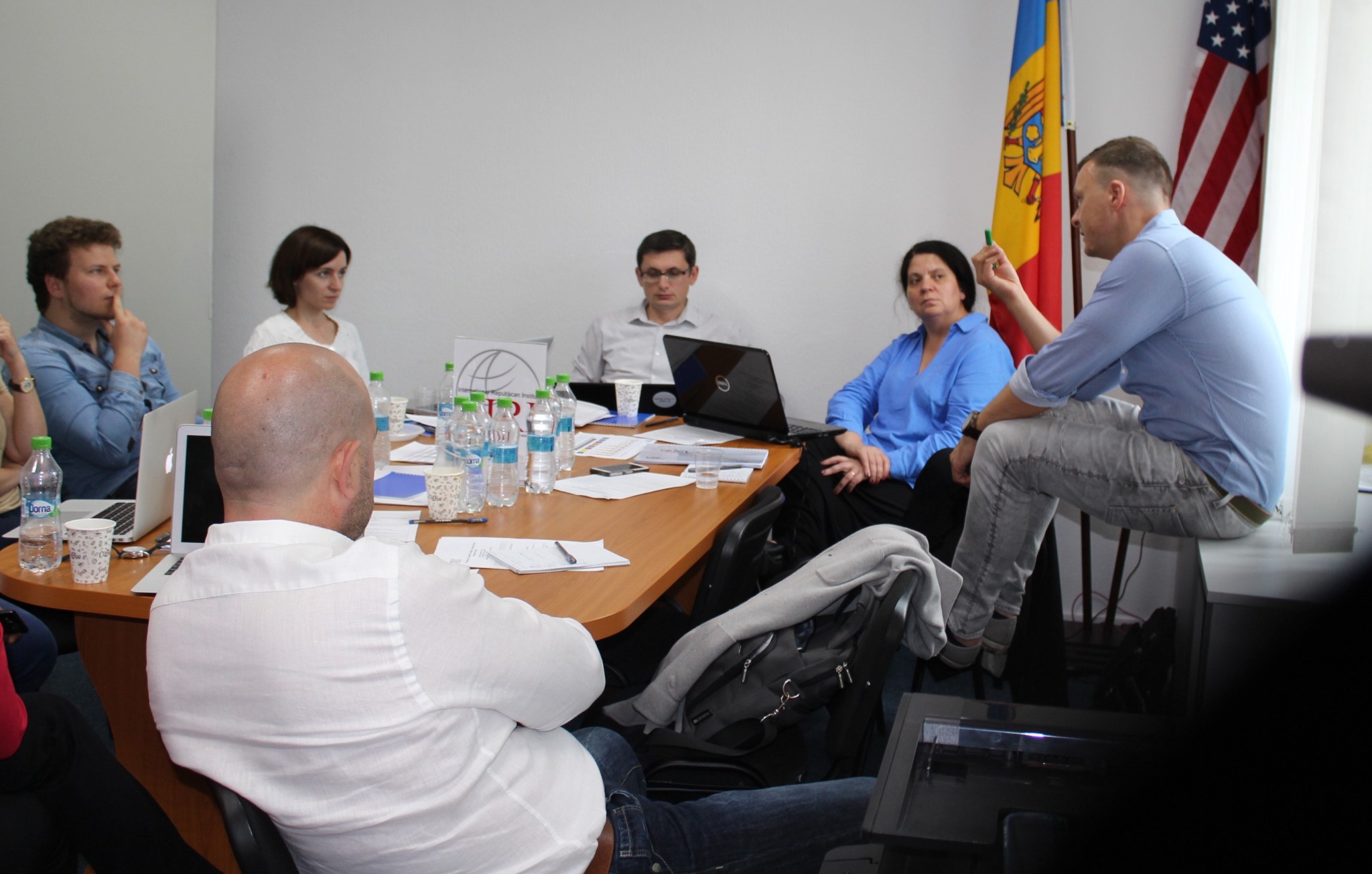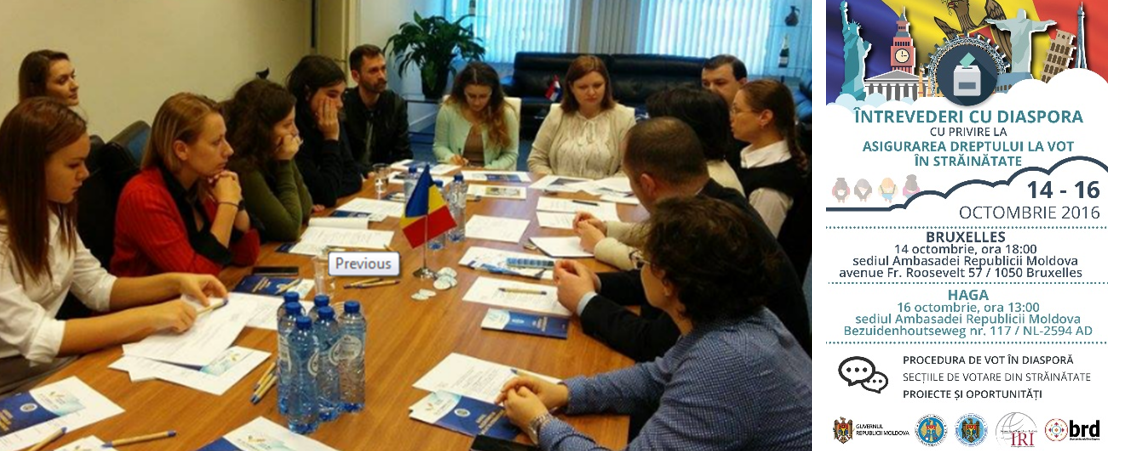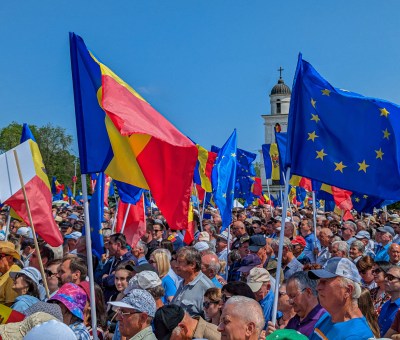The 2014 Moldovan banking scandal became an inflection point for the country, underlining issues of corruption and poor governance and exposing the transactional nature of politics led by oligarchs. The disappearance of $1 billion from Moldova’s three largest banks, a theft equal to 12% of Moldova’s GDP, ignited mass protests in the country and a desire to transform institutions.
Although the Alliance for European Integration, a coalition of small pro-Western parties, splintered in the wake of the banking scandal, space opened for new politicians to step onto the political stage. This included now President Maia Sandu and Andrei Năstase, leader of the pro-reform Dignity and Truth Platform (Platform DA). The International Republican Institute (IRI) encouraged this new wave of passionate democratic actors who wanted to start political parties, with the help of its public opinion polling and technical expertise.
A 2014 poll by IRI illuminated something surprising: Moldovans ranked the education system unusually high in performance among institutions compared to polls in other countries, according to Eurasia Senior Director Steve Nix. This finding suggested that citizens had some awareness of actions taken by the Ministry of Education to improve education, leading IRI to inquire more about actions taken within the Ministry.
The Ministry was headed by Maia Sandu, a dynamic, Western-educated reformer, who previously worked for the World Bank and was striving to implement educational reform. Thus, in 2015, when Sandu requested a consultation with IRI to learn how to become more engaged in politics, the Institute provided her with resources and knowledge on forming her own political party, which became the Party of Action and Solidarity (PAS). The party was officially registered in 2016.

Beyond this, IRI trained new political parties to use polling data to target political messaging toward voters’ concerns, increase engagement with citizens to build their voter base, and focus on running transparent campaigns.
“Politics in Moldova hadn’t required parties to really build and utilize structures and campaign at the grassroots,” says Eurasia Deputy Director Stephanie Palen, who has worked on Moldova at IRI since 2015. “It was difficult to promote such direct campaigning because the oligarch-led political system had not required it.”
However, PAS and other reform-minded parties began to build a solid base of voters at the local level who wanted reforms and to orient Moldova toward the West, while focusing on including more women and youth. Soon other political parties needed to mimic this behavior to stay competitive in Moldovan politics.
The diaspora voting initiative was another innovative approach to help increase voter turnout and improve the representativeness of Moldova’s public officials. One quarter of the eligible voting-age population resides abroad, mostly in the EU, and remains highly invested in their home country. With this in mind, IRI addressed concerns over voting procedures and mobilized diaspora organizations to participate in elections alongside Moldova’s Central Election Commission.

While Maia Sandu did not win the 2016 presidential election, there were positive trends emerging: Sandu placed second in the runoff, and the diaspora accounted for 8.7% of the total votes cast, almost double the number in the 2014 parliamentary elections. While pro-reform parties were disappointed with the outcome, IRI encouraged PAS and other political parties to continue their work.
“We told them that elections and competition matter,” Palen said. “You have to be in the ring to see success, which proved true in the 2019 parliamentary elections.”
The 2019 elections were the first time elections felt competitive, according to Palen, as political parties needed to run more effective campaigns to gain voters. Together, PAS and Platform DA earned the second most votes and won 26 seats in the parliament, giving them leverage in negotiations for forming a government. This outcome marked the success of pro-reform parties, culminating in a coalition government between the reform-minded electoral bloc ACUM – consisting of PAS, Platform DA, and the Liberal Democratic Party of Moldova – and the Party of Socialists (PSRM). This government in turn elected Sandu as their Prime Minister.
Part III will conclude the series by discussing IRI’s current relationship with President Sandu and the ruling party while looking toward the future of IRI programming in Moldova.

